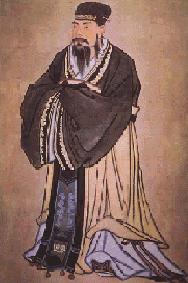| About China > History > Celebrities |
|
|
Meng Zi
Meng Zi, known as Mencius, was born about 370BC in today's Shandong Province. Shortly after he was born, his father died, and he was subsequently brought up by his mother alone.
Mencius was a Confucian disciple who made major contributions to the humanism of Confucian thought. Mencius declared that man was by nature good. He expostulated that a ruler could not govern without the people's tacit consent and that the penalty for unpopular, despotic rule was the loss of the "mandate of heaven". Mencius was the synthesizer and developer of applied Confucian thought. Before he died at the age 84, he was said to have completed the editorial work of Confucius.
Mencius argued that all men have a mind that cannot bear to see the suffering of others. From this it follows that the feeling of commiseration, the feeling of shame and dislike, the feeling of modesty and complaisance, and the feeling of approving and disapproving are all essential to a human being. Mencius asserted that the feeling of commiseration is the principle of benevolence. The feeling of shame and dislike is the principle of righteousness. The feeling of modesty and complaisance is the principle of propriety. The feeling of approving and disapproving is the principle of knowledge. Mencius concluded that, Men have these four principles just as they have their four limbs. When men having these four principles, yet say of themselves that they cannot develop them, they play the thief with themselves. |
||||
 |
